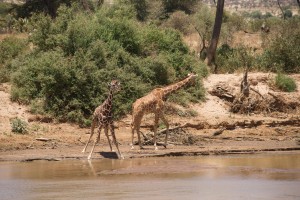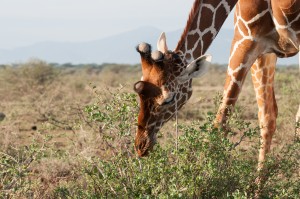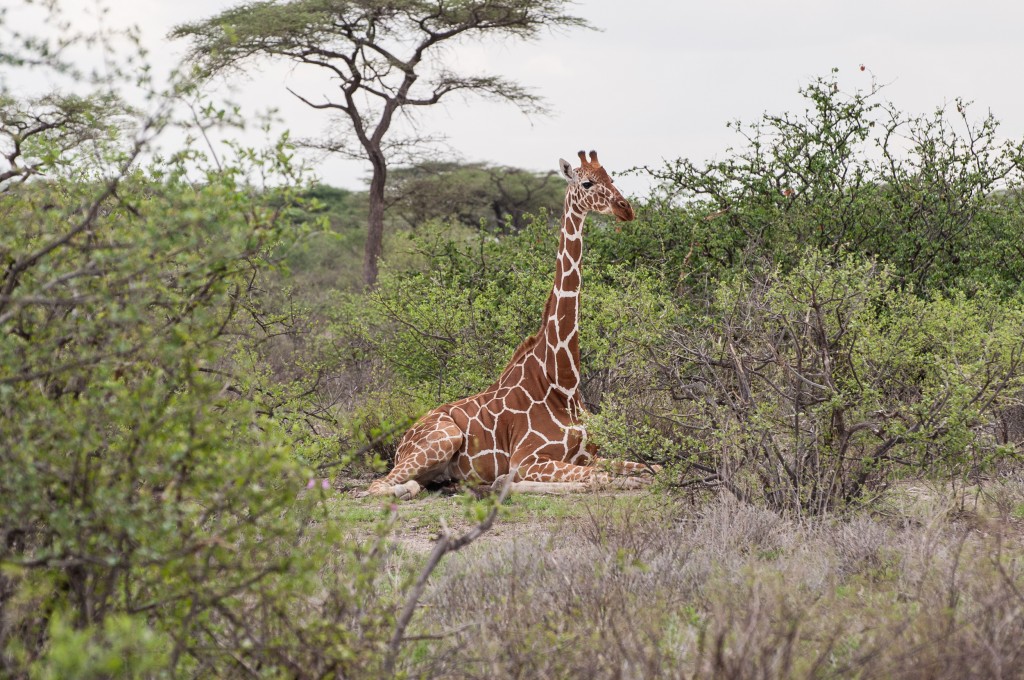One of the things I look forward to most when I visit Samburu is the Reticulated Giraffe. All giraffes are fascinating to watch but the markings on the Reticulated Giraffe are stunning. It is native to Somalia, Southern Ethiopia and northern Kenya.
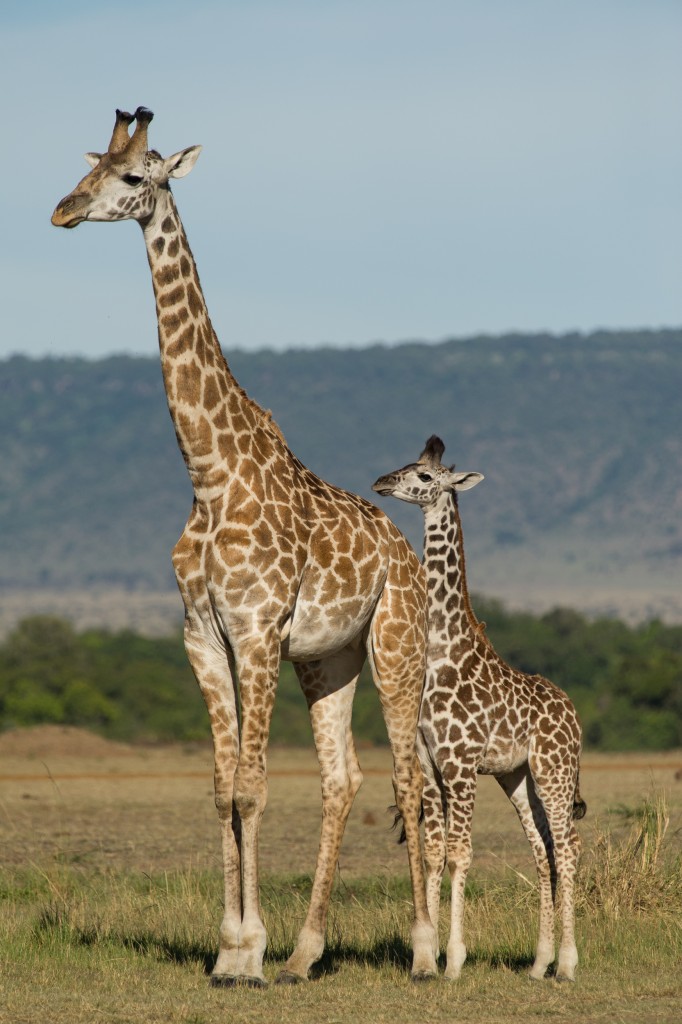
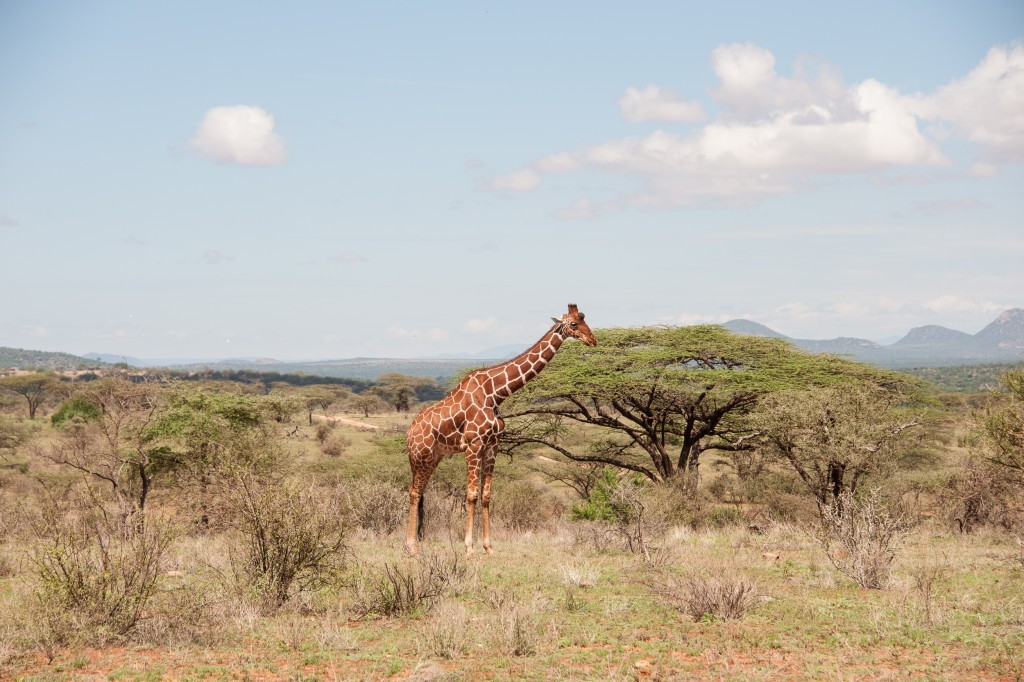
The reticulated giraffe has darker, more even colour blotches than the more commonly seen masai or southern giraffe. The markings on the giraffe seen in the Masai Mara (seen in left hand photo) are varied in size and the cream coloured lines seem wider. The shape of the brown markings on the masai giraffe sometimes remind me of butterflies. Because the reticulated giraffe are rare, they are quite likely to be the variety you have seen in seen the zoo.
The coat colours of the reticulated giraffe can vary and I am not sure whether this is a feature of age or genetic variation. So in this picture there is variation in colour even within one group.
The giraffe are frequently seen carrying a small bird called an oxpecker around. Even with the giraffe’s uneven gait, the oxpeckers are able to perch securely and feed on the insects they find in and on their coats. It provides some good photographic opportunities. Close-ups emphasise the size of the giraffe and give the oxpecker a somewhat cheeky character!
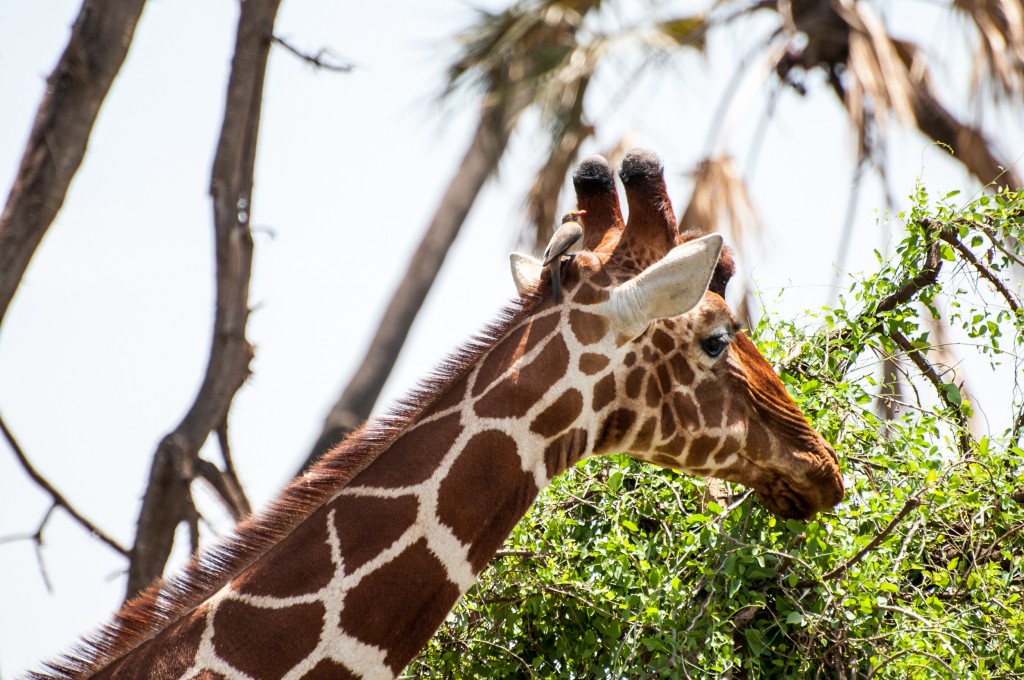
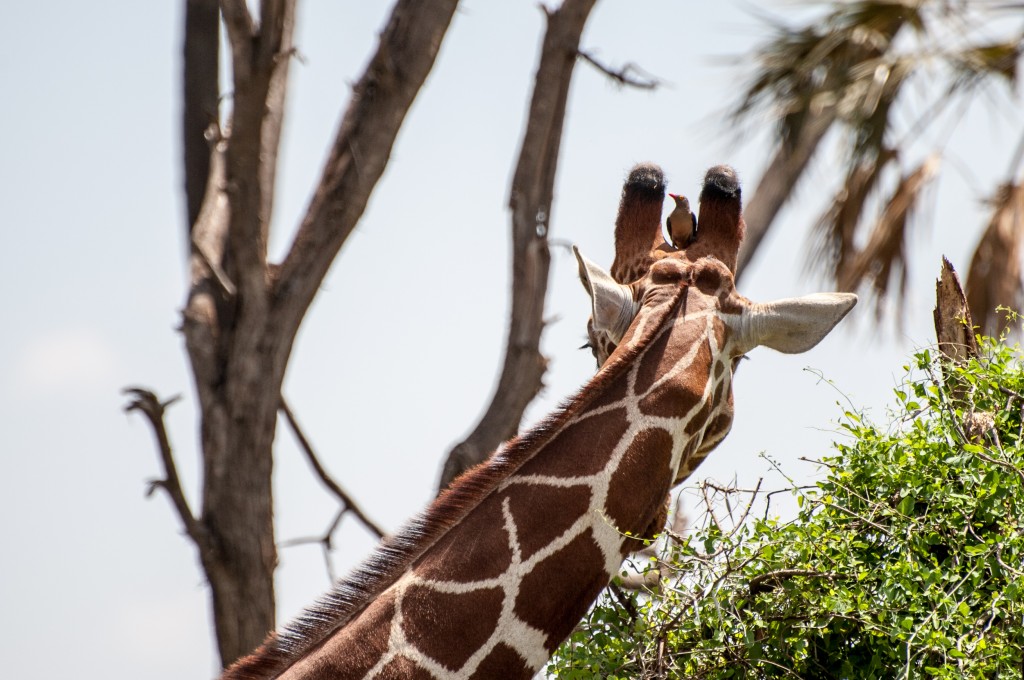
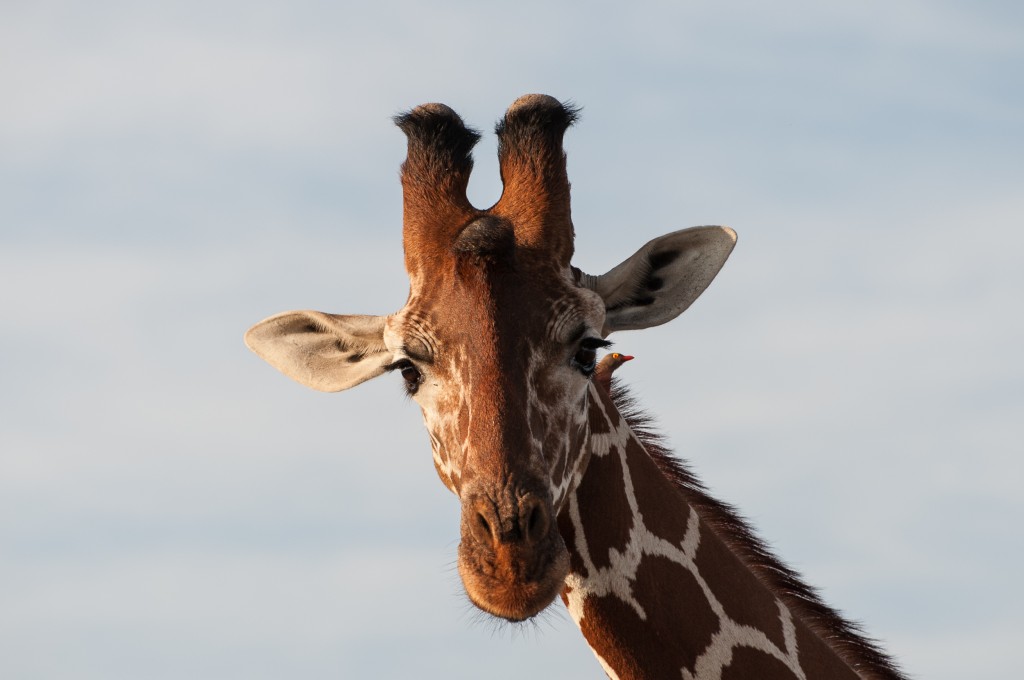
Often they are seen shrouded by thick thorny bushes where their height allows them to feed from new leaves and the scrub provides some protection. Sometimes you get a sight of them feeding lower down allowing you to see the shape of the head. Here you can clearly see the third horn.
Water is important in this arid environment but they are capable of going for days without a drink. This is in part because their body shape allows them to efficiently manage their body temperature. Drinking is a challenge though. Their head is large and heavy which makes it difficult to lower. Their neck is strong and flexible but it still requires an amazing balancing act to reach the water. The front legs are widely splayed (sometimes it can look as if they are going to do the splits!) and, depending on the angle needed, they can flex one or both knee joints to give added stability or reach.
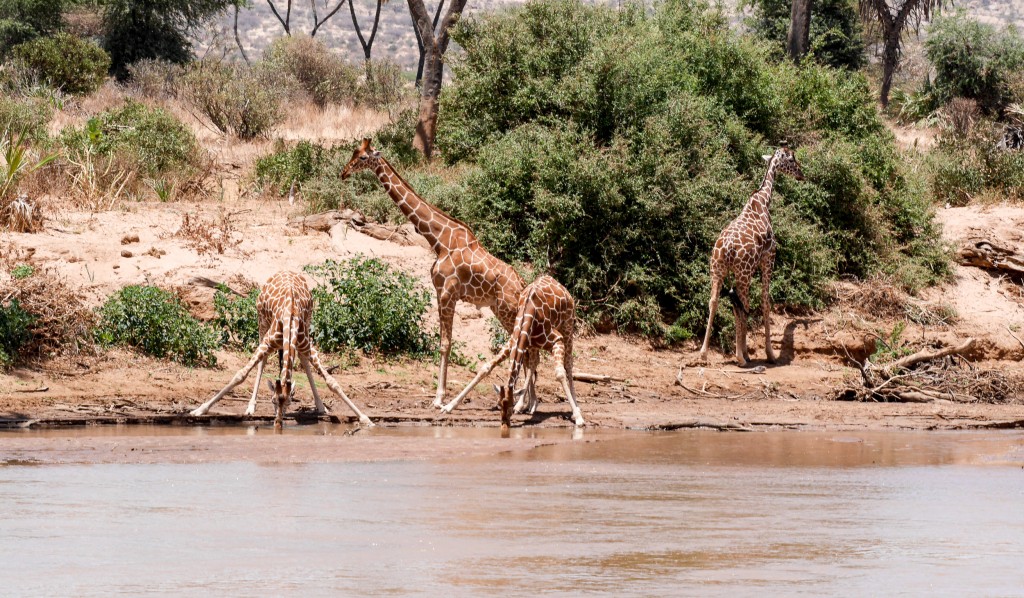
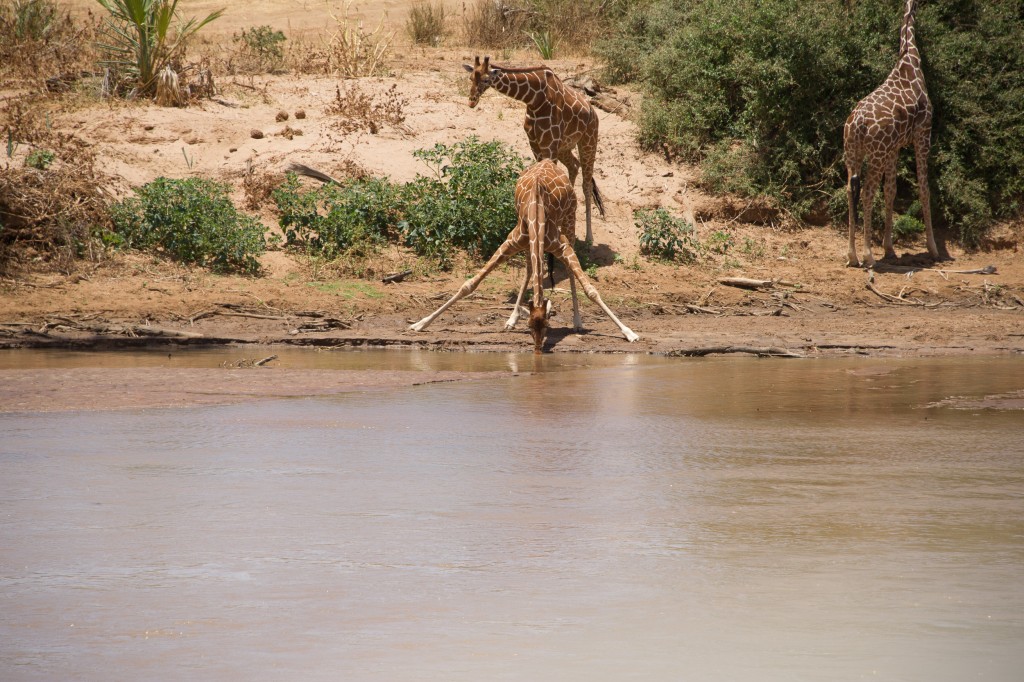
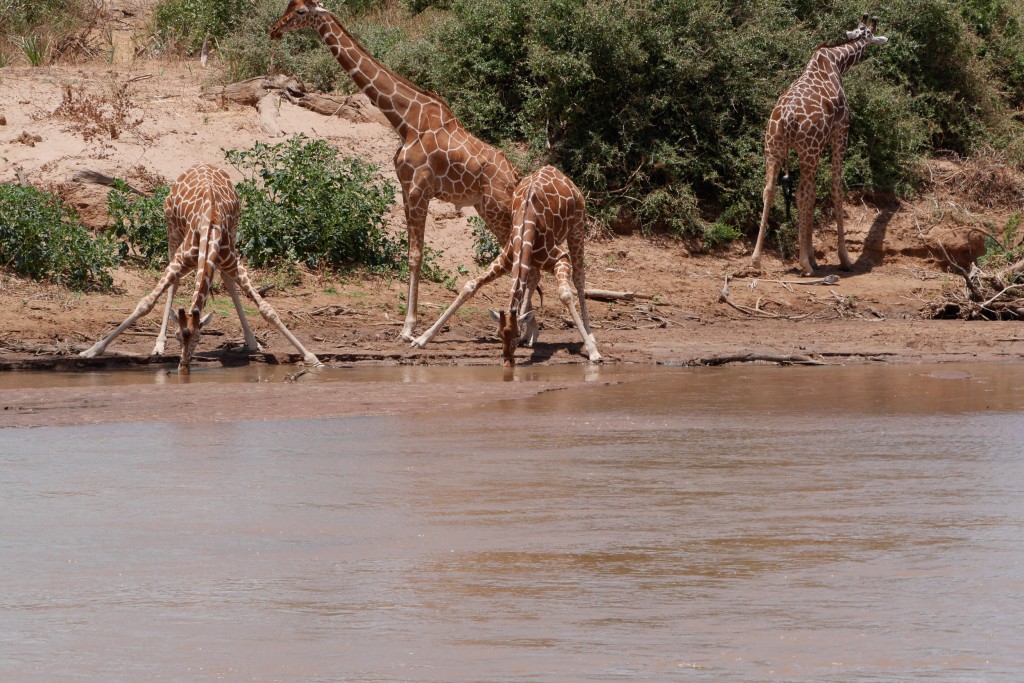
They do sit down to rest and when they are on the ground you can see their carefully folded legs. They can get up surprisingly quickly although the action is not exactly elegant!
